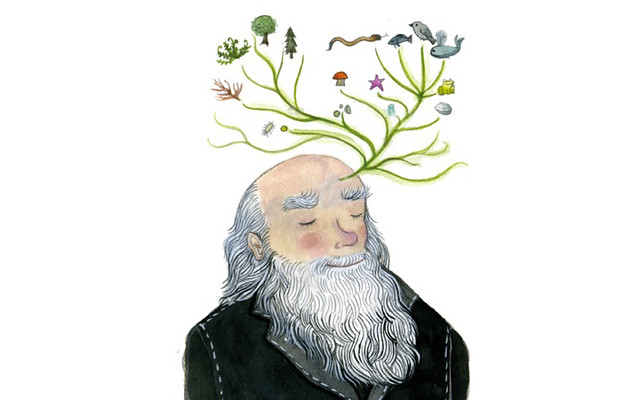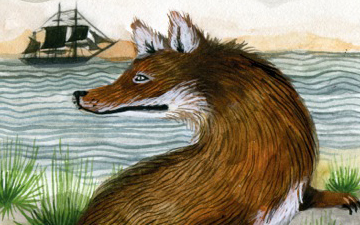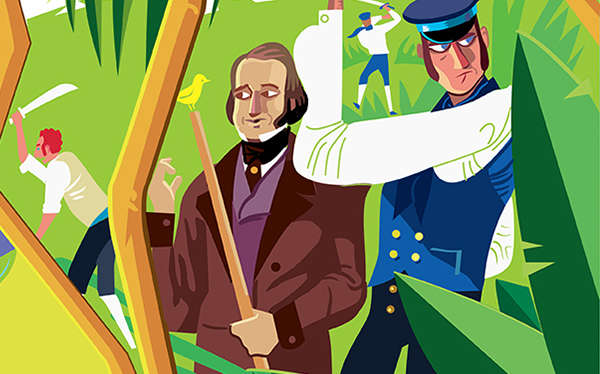Voyage of the Beagle Darwin Deck
2016 – (See Cards | Deck Info | Download cards : board : rules | Purchase Box Set : Cards Only)…
This is a deck made with research help from Karen James and includes commissioned art of a variety of organisms that Darwin observed or collected whilst on the H.M.S. Beagle. This deck will include 40 new cards and also a small game board that depicts a map of the voyage route. Note that the different card border colours are representative of different legs of the journey.

Scientific Insight
Event Card
Play: Can be played on the table next to the plater for the below effect.
.
Effect: Leave this card on the table. This card enables the player to pick up two new cards per TURN instead of the usual one.

Darwin Gets Seasick
Event Card
Play: Can be played for the below effect, and then discarded.
.
Effect: All other players must discard half (round down) of the cards in their hand.

Falkland Island’s Wolf
Dusicyon australis


6 POINTS
Play: This wolf is EXTINCT & has a MOVE of 2.
.
Fact: Its scientific name means “foolish dog of the south,” indicative of its fearlessness, which led to it being easily hunted to extinction.

Human Influence
Event Card
Play: Play on a SPECIES card.
.
Effect: The played SPECIES card is discarded immediately.

Then and Now
Event Card
Play: Can be played at the start of one’s TURN for the below effect, and then discarded.
.
Effect: All EXTINCT species on the table are discarded.

Pacific Sardine
Sardinops sagax


6 POINTS
Play This fish has a MOVE of 2. Needs to be played next to a PLANKTON species card.
for food.
Fact: This fish is found throughout the South Pacific (brown, green and purple card borders).